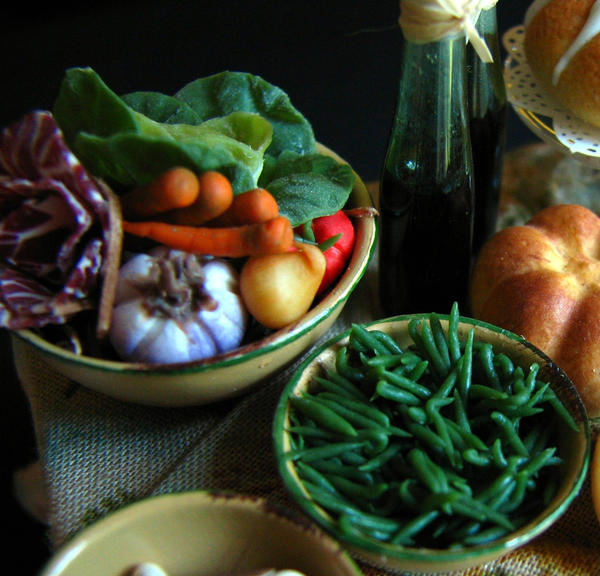PART II
What Kind of Food Should I Eat?
If you follow the rules offered thus far you will be eating real, whole food most of the time—the simple key to a healthy diet. Yet there are some whole foods that are better for us than others, and some ways of producing them and then combining them in meals that can make a difference. So the rules in this section propose a handful of personal policies regarding what to eat, above and beyond “food.”
22. Eat mostly plants, especially leaves.
Scientists may disagree on what’s so good about plants—the antioxidants? the fiber? the omega-3 fatty acids?—but they do agree that they’re probably really good for you and certainly can’t hurt. There are scores of studies demonstrating that a diet rich in vegetables and fruits reduces the risk of dying from all the Western diseases; in countries where people eat a pound or more of vegetables and fruits a day, the rate of cancer is half what it is in the United States. Also, by eating a diet that is primarily plant based, you’ll be consuming far fewer calories, since plant foods—with the exception of seeds, including grains and nuts—are typically less “energy dense” than the other things you eat.








